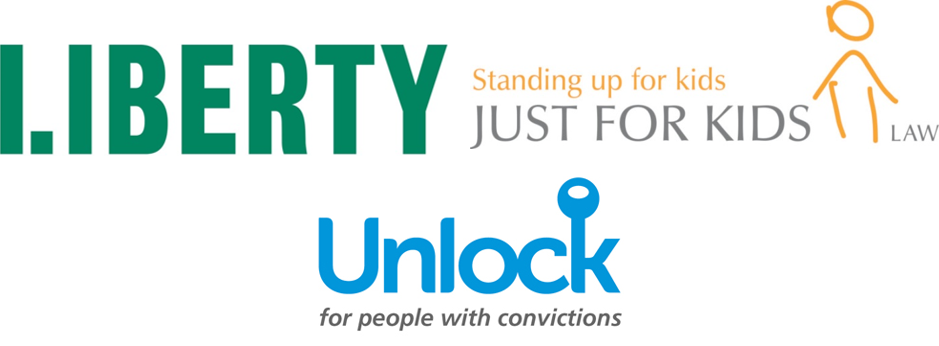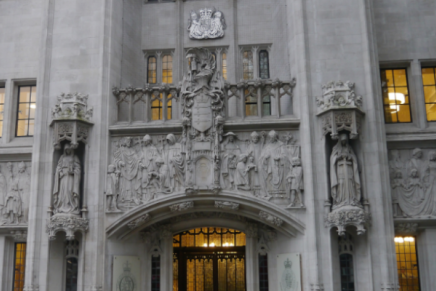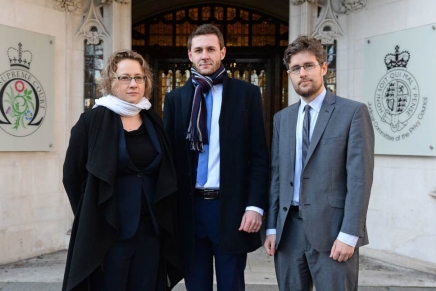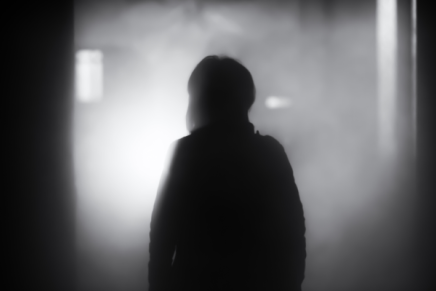
- Supreme Court ruled one year ago that disclosure and barring service rules breach rights
- DBS system continues to unlawfully breach rights of people with multiple minor convictions and childhood cautions.
A year after the UK’s highest court found current rules on criminal records checks breach human rights laws, Liberty, Unlock and Just for Kids Law have denounced the Government for failing to fix this broken system.
On 30 January 2019, the Supreme Court directed the Government to fix the broken Disclosure and Barring Service (DBS) system. Four claimants had challenged the blunt and punitive rules, that require them to disclose multiple offences, no matter how historic or minor, and to disclose cautions received in childhood.
The Court, agreeing with two lower courts whose judgments the Government had challenged, said the Government needed to fix the rules to allow people to move on from past mistakes.
A year later, the Government has done nothing, and this injustice continues.
Sam Grant, Policy and Campaigns Manager at Liberty, said: “It is a disgrace that after years of failed wrangling in the courts, the Government continues to drag its feet and refuses to fix a clearly broken system.
“A blunt bureaucratic system continues to subject people to unfair treatment for mistakes they made long ago. If you make a few mistakes, you should be able to move on without it tarnishing you for the rest of your life. The Government must finally put this right.”
Christopher Stacey, Co-Director of Unlock, said: “Thousands of people with old and minor criminal records have had their cautions or convictions disclosed in the last year because of the government’s delay to reform the system. Unlock intervened in the Supreme Court case because we know people are unnecessarily anchored to their past due to an arbitrary regime which forces the disclosure of irrelevant information. We strongly urge the government to put an end to this unfair lifelong sentence by immediately mending the broken filtering rules alongside committing to carrying out a root and branch review of the criminal record disclosure regime. It’s time for a fresh start for the criminal records system.”
Enver Solomon, CEO of Just for Kids Law, said: “There is no excuse for the delay in implementing the landmark judgement. Every year about 25,000 youth cautions are disclosed in criminal record checks, most of which are for incidents that happened over 5 years ago. All these people are being unlawfully stigmatised by the government dragging its feet and failing to change the law. It must now act immediately to ensure no child who is given a caution ends up with a lifelong criminal record that robs them of the chance to be fully rehabilitated.”
“P” and “G”
Liberty’s client, known only as “P”, committed two minor offences in 1999 – stealing a 99p book, then missing her hearing at a Magistrate’s Court. She had an undiagnosed mental illness. P has committed no crime since these convictions. She aspires to be a teaching assistant, to make the most of her previous teaching experience.
Under current Disclosure and Barring Service (DBS) rules, P is required to disclose her convictions when applying for jobs and voluntary positions. This leads to conversations about her medical history, and she has been frustrated in her attempts to work.
Just for Kids Law’s client, known as “G” received two reprimands when he was 13 years old. These reprimands appear on standard and enhanced DBS checks until he is 100 years old. The Supreme Court found that disclosing such reprimands to employers is directly contradictory to their purpose. Just for Kids Law argued that reprimands (now called youth cautions) are designed as a rehabilitative measure, and not a punishment for life.
Unlock, which campaigns on behalf of people with criminal records, intervened in the case.
Unlock estimates that between 2007 and 2017, over 1.7 million people received a minor conviction that was not their first offence. All of these will now be spent but will still appear on DBS checks.
Going by records from previous years, Unlock estimates that around 25,000 standard or enhanced DBS checks will have resulted in the disclosure of cautions received in childhood since the Supreme Court ruled this to be unlawful.
Contact the Liberty press office on 020 7378 3656 / 07973 831 128 or pressoffice@libertyhumanrights.org.uk
Just for Kids Law is a UK charity that works with and for children and young people to hold those with power to account and fight for wider reform by providing legal representation and advice, direct advocacy and support, and campaigning to ensure children and young people in the UK have their legal rights and entitlements respected and promoted and their voices heard and valued.
Liberty challenges injustice, defends freedom and campaigns for everyone in the UK to be treated fairly, with dignity and respect. We’re an independent membership organisation, and our principles are guided by evidence and expertise – not political agenda, profit or popular opinion.
We use our voice in courtrooms, in the news, on the streets and in politics to demand and deliver lasting change to benefit the many and most vulnerable.
Since 1934 we’ve inspired and empowered people to defend their rights, and the rights of their family, friends and communities. Join us. Stand up to power.
Unlock is an independent national charity that provides a voice and support for people with convictions who are facing stigma and obstacles because of their criminal record, often long after they have served their sentence.


